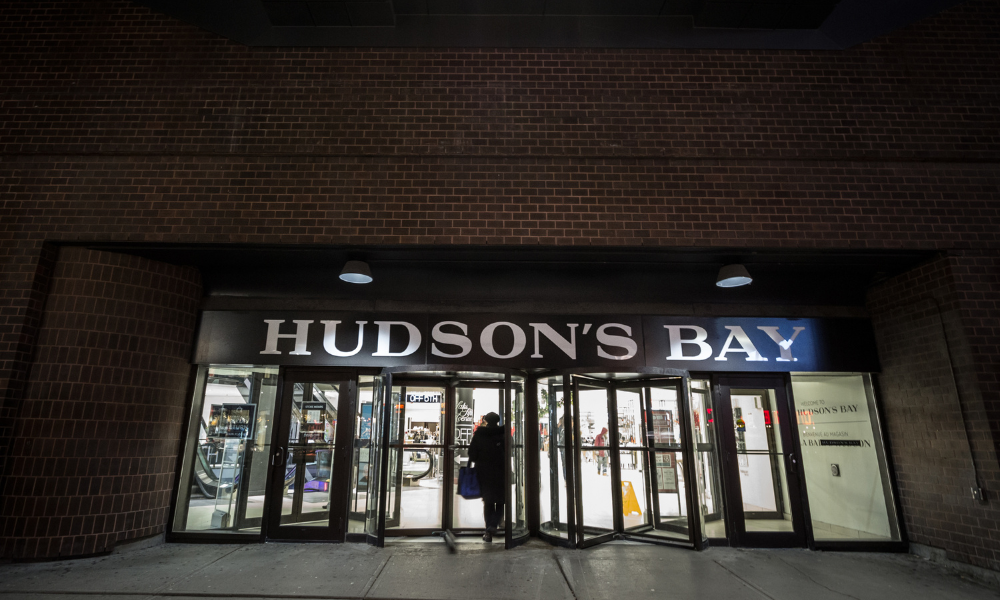'No manager or executive should see a bonus while severance and other legal obligations to workers remain unpaid'

Hudson’s Bay Company (HBC) is facing criticism from workers’ unions for awarding about $3 million in bonuses to executives amid the company’s liquidation process.
The company made the decision to award the management bonuses as more than 9,300 workers are at risk of losing their job, according to the Canadian Labour Congress (CLC).
“Canada’s unions stand in full solidarity with HBC workers and demand that the company reverse course immediately,” says the CLC.
“No executive should be pocketing bonuses while workers are left without a safety net.”
HBC previously said it will start its full liquidation process. That came after the company went through Companies’ Creditors Arrangement Act (CCAA) proceedings following an initial order for creditor protection from the Ontario Superior Court of Justice.
During the liquidation process, Hudson’s Bay and its Canadian Saks Fifth Avenue and Saks Off 5th stores will remain open to serve customers in stores and, for a limited time, at TheBay.com, according to HBC.
Unifor shares the CLC’s concern.
“No manager or executive should see a bonus while severance and other legal obligations to workers remain unpaid,” says Unifor National President Lana Payne.
The union claims that some of its members are entitled to upwards of $35,000 in severance from HBC, depending on wages, seniority, and other factors like commissions.
“We’re going to fight for every dollar owed to these workers,” says Payne.
Layoffs at HBC have already begun and will continue through June, according to Unifor.
Unions call on government for support for workers
Amid the HBC situation, both the two groups are calling on the federal government to provide better support for workers affected by the development.
The CLC notes that, in 2023, the federal government passed the Pension Protection Act. The act amends the Bankruptcy and Insolvency Act and the Companies’ Creditors Arrangement Act to “ensure that claims in respect of unfunded liabilities or solvency deficiencies of pension plans and claims relating to the cessation of an employer’s participation in group insurance plans are paid in priority in the event of bankruptcy proceedings”.
The CLC notes that that is a “crucial step forward”. However, “these vital protections will not come into effect until April 27, 2027”.
“We also call on the federal government to ensure that no worker falls through the cracks and that programs like the Wage Earner Protection Program (WEPP) are accessible without delay, and that no Employment Insurance benefits are clawed back in this process,” says the CLC.
The WEPP provides for the payment of outstanding eligible wages to individuals whose employer is bankrupt, subject to a receivership, or other WEPP qualifying insolvency proceeding within the meaning of subsection 243(2) of the Bankruptcy and Insolvency Act.
Meanwhile, Unifor claims that government programs like the WEPP “are inadequate and fail to meet the urgent needs of workers facing layoff.”
“For many long-service members, this amount falls far short of what they are owed with the potential of months-long delays before they receive a penny,” says Payne.
Unifor is urging all levels of government to take legislative action that ensures workers are “not treated as afterthoughts in corporate financial dissolutions”.
Liquidation sales kicked off Monday morning at all but six of Hudson's Bay's locations. This came after an Ontario judge gave the employer permission on Friday to begin clearing the inventory at most of its stores, according to a CBC report. The company is expected to have completed the process by June 15, according to the report.
HBC, one of Canada’s oldest companies, has struggled financially in recent years. As of January 1, it had just $3 million in cash, with $1.13 billion in secured debt and $520 million owed to nearly 1,900 unsecured creditors, including landlords and suppliers.




